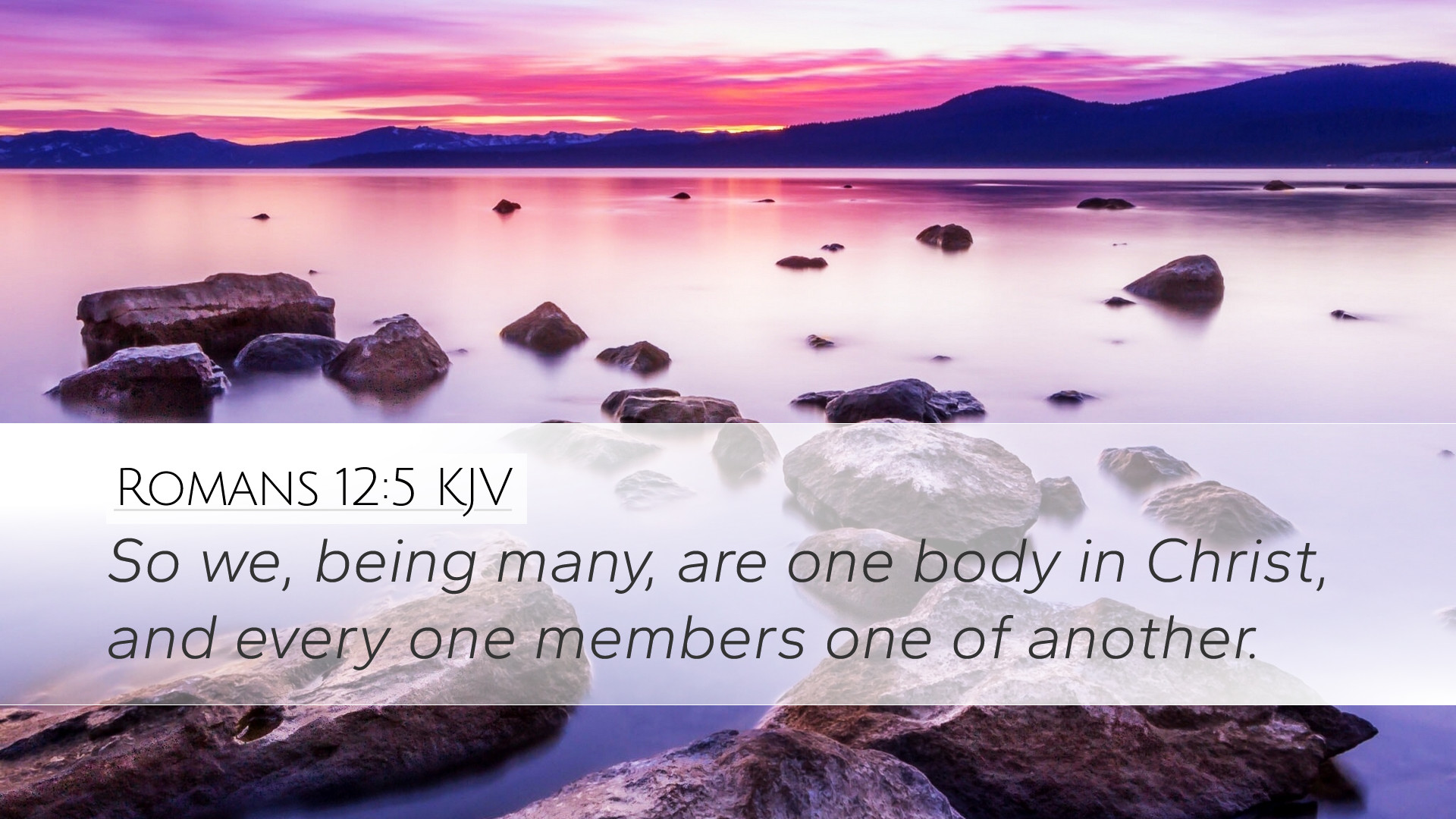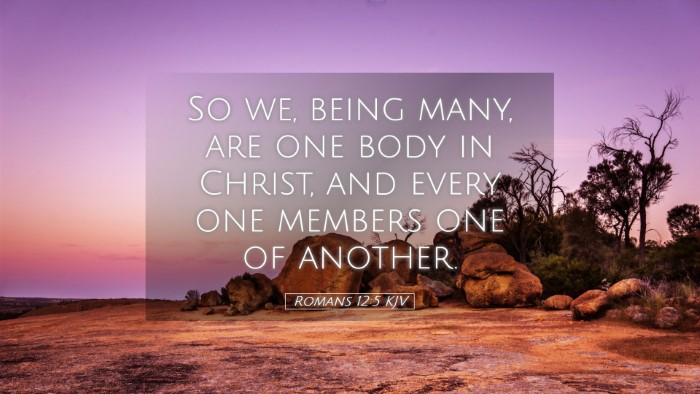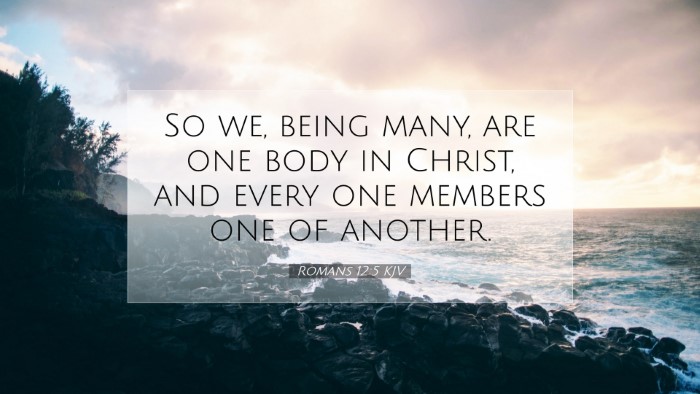Old Testament
Genesis Exodus Leviticus Numbers Deuteronomy Joshua Judges Ruth 1 Samuel 2 Samuel 1 Kings 2 Kings 1 Chronicles 2 Chronicles Ezra Nehemiah Esther Job Psalms Proverbs Ecclesiastes Song of Solomon Isaiah Jeremiah Lamentations Ezekiel Daniel Hosea Joel Amos Obadiah Jonah Micah Nahum Habakkuk Zephaniah Haggai Zechariah MalachiRomans 12:5
Romans 12:5 KJV
So we, being many, are one body in Christ, and every one members one of another.
Romans 12:5 Bible Commentary
Commentary on Romans 12:5
Bible Verse: “So we, being many, are one body in Christ, and everyone members one of another.” (Romans 12:5)
This verse stands as a profound declaration about the unity and interdependence of believers in the body of Christ. As we dive into this commentary, we will explore insights from revered public domain commentaries to elucidate the richness and depth of this scripture.
1. Unity in Diversity
Matthew Henry emphasizes that the Church is likened to a body, where each member, although different, plays an essential role. He notes:
- This metaphor illustrates both unity and diversity within the Christian community. Each individual brings unique gifts and functions, yet they all contribute to the overall health and work of the body.
- Believers are bound together by their faith in Christ, fostering a collective identity that affirms their shared purpose and calling.
Henry elaborates that just as various parts of a human body are interconnected, so too are Christians linked to one another in Christ. This interdependence urges believers to recognize the value and function of each member.
2. Theological Implications
Albert Barnes highlights the theological significance of being “one body in Christ.” He provides several key insights:
- This phrase conveys the profound spiritual reality that all believers are united through their faith in Jesus Christ.
- The unity described here transcends cultural, ethnic, and social barriers, emphasizing that in Christ, all are equal (Galatians 3:28).
- Membership in the body implies responsibility; each member is accountable for their contributions to the whole, affirming the need for mutual support and encouragement.
Barnes reinforces that Christ is the source of this unity. It is through Him that believers are made part of the body, calling for their commitment to live out their faith within the community.
3. Practical Application
Adam Clarke brings a practical lens to this verse, focusing on how believers can apply its truths in everyday life:
- Clarke encourages Christians to actively engage in the life of their local church, recognizing that each member's involvement strengthens the communal aspect of worship and service.
- He stresses the importance of using one’s spiritual gifts to benefit others, reminding believers that their talents are not for individual glory but for building up the body.
- Furthermore, Clarke points out that the acknowledgment of being “members one of another” urges believers to cultivate strong relationships rooted in love and mutual respect.
Clarke’s insights challenge believers to assess their participation within the Church and to seek ways to promote unity through active service and love.
4. The Role of the Holy Spirit
All three commentators touch upon the vital role of the Holy Spirit in forging this unity. Henry reminds us that:
- The Holy Spirit is the agent of this unity, indwelling each believer and equipping them for their unique role within the body.
- It is through the Spirit that believers are gifted and taught to exercise their roles effectively, underscoring that true Christian community is spirit-led.
Barnes succinctly adds that it is the Spirit that ensures diversity among gifts while maintaining the essential unity of the faith, thus enriching the local and universal Church.
5. Conclusion
In summary, Romans 12:5 articulates a foundational truth of the Christian faith: believers are united as one body in Christ, with each member serving a crucial purpose. Drawing from the insights of Matthew Henry, Albert Barnes, and Adam Clarke, it is evident that:
- The metaphor of the body illustrates the harmonious relationship desired among believers.
- Unity in Christ does not negate diversity but rather celebrates it while calling for a commitment to mutual service.
- Every believer is invited to contribute to the life of the Church, empowered and led by the Holy Spirit.
This understanding not only enriches theological reflection but also prompts practical application in how believers relate to one another within the Church. Pastors, students, theologians, and Bible scholars are encouraged to embrace this community dynamic, fostering an environment where every member is valued and engaged in ministry for the glory of God.


